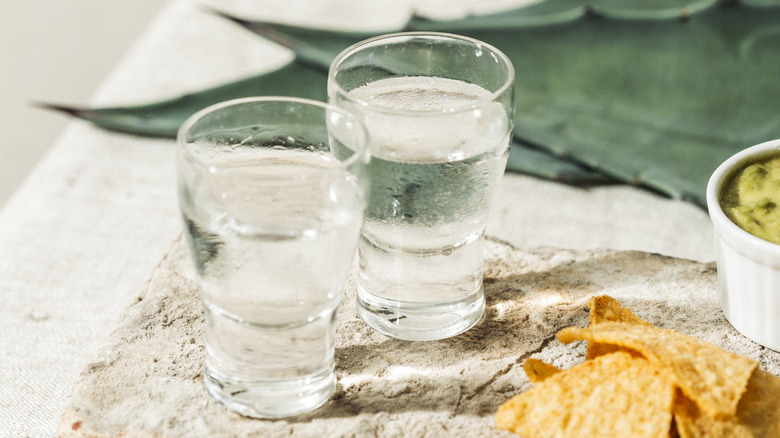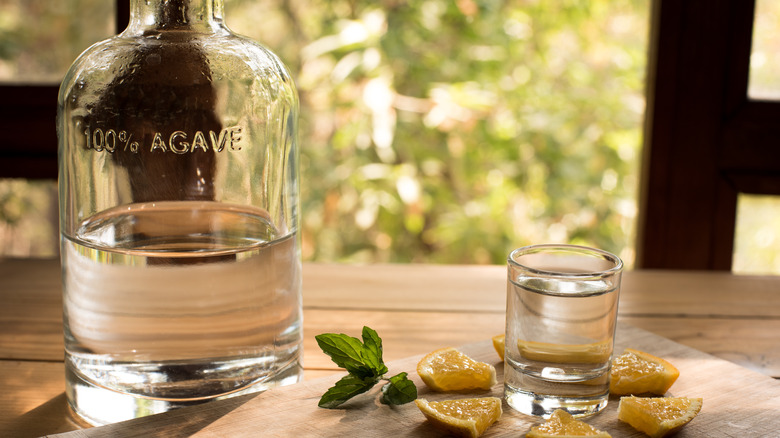Why Mezcal That Isn't Smoky Can Be A Red Flag, According To An Expert Mixologist - Exclusive
Premium tequila sales have surged in America, with agave spirits switching up drinks like martinis and Old Fashioneds on menus across the country. In 2022, sales of tequila went up by 17.2%, reaching $6 billion total. To get on board with pro bartenders, it's time to learn not only about tequila, but mezcal, its smoky cousin. To understand how mezcal should taste, Food Republic spoke with expert mixologist Tony Abou-Ganim at the Nassau Paradise Island Wine and Food Fest's Jerk Jam.
Abou-Ganim clarified the difference between tequila and mezcal, saying, "Mezcal is basically a generic name for agave-based distill [...] All tequilas are mezcals, but not all mezcals are tequilas." Mezcal can be made from 40 different agave plants, but Mexican law mandates that tequila be distilled from Blue Weber agave. How long a tequila or mezcal ages and how it's stored determines whether it is called blanco (unaged), reposado (in the middle), or añejo (aged for at least a year).
Tequila's age and price can tell you whether it should be savored alone, or used in a mixed drink like a Paloma or margarita. However, it's murkier with mezcal. When sipping a mezcal cocktail, you should expect a smoky flavor. Abou-Ganim says it makes him "very nervous" when he doesn't taste any smokiness, since mezcal is made by roasting the piña (the agave plant's core) in pits lined with lava, charcoal, and wood. With no smoke, you might wonder if a bar is using inferior mezcal.
Tips for selecting mezcal
Traditionally, mezcal is processed in small batches by hand (the use of machinery is forbidden), which explains the wide range of flavors associated with the spirit. However, overproduction has led to manufacturers taking shortcuts. Tony Abou-Ganim says, "Everything in the agave world is expanding so fast, and mezcals are being made to be more approachable, so less smoke."
To avoid buying a weak mezcal, read a bottle's label before purchasing, especially since mezcal is generally pricier than tequila. Beyond blanco, reposado, and añejo, there are three categories that distinguish different types of mezcal: mezcal, artisanal, and ancestral. Bottles labeled only "mezcal" may be processed in industrial autoclaves and might use steam to cook the agave, causing a lack of smokiness. If the bottle is labeled "artisanal mezcal," the distiller uses a more traditional method, cooking the agave in pots. "Ancestral mezcal" is roasted in clay pots over a wood fire.
Most mezcal is made in Oaxaca, Mexico, so you might want to check for that on the label, too. Similar to tequila, mezcal aged between two and 12 months in steel or wooden barrels is called mezcal reposado. The liquor will have notes of the wood used to age it, and it can darken from clear to a caramel color. Añejo, which is aged for longer, has an even deeper flavor and color that resembles whiskey. This kind of mezcal is typically enjoyed neat to savor its smoky taste.


